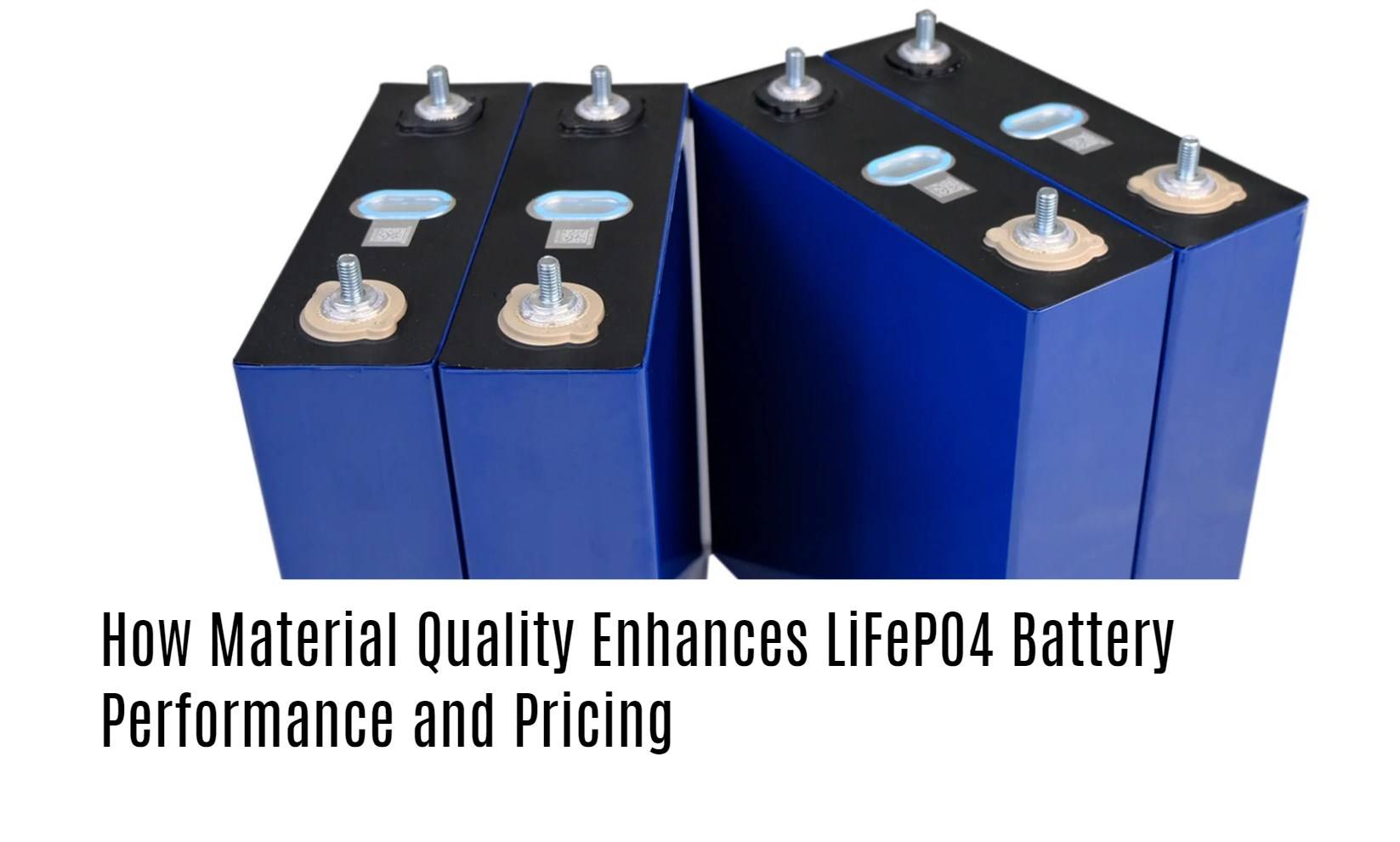Material quality significantly influences both the performance and pricing of LiFePO4 batteries. High-quality materials enhance battery efficiency, lifespan, and safety, while also impacting production costs. Understanding these factors can help consumers make informed decisions when selecting batteries for their applications.
How does material quality influence the performance of LiFePO4 batteries?
The performance of LiFePO4 batteries is directly linked to the quality of materials used in their construction. High-quality lithium iron phosphate (LiFePO4) ensures better thermal stability, higher energy density, and improved cycle life. This leads to more reliable performance in various applications, including electric vehicles and renewable energy storage systems.
Performance Impact of Material Quality
| Material Quality | Performance Characteristics |
|---|---|
| High Quality | Enhanced thermal stability, longer cycle life |
| Low Quality | Increased risk of thermal runaway, reduced lifespan |
What role do raw materials play in determining LiFePO4 battery pricing?
Raw materials are a significant factor in the pricing of LiFePO4 batteries. The primary components include lithium, iron, and phosphate, each with fluctuating market prices. Higher quality raw materials generally lead to better battery performance but also increase production costs. For instance, lithium prices have been volatile due to supply chain issues and rising demand.
Raw Material Cost Analysis
| Raw Material | Average Cost per kg |
|---|---|
| Lithium | $50 – $60 |
| Iron | $0.20 – $0.50 |
| Phosphate | $15 – $20 |
Why are manufacturing processes critical to battery performance and cost?
The manufacturing processes for LiFePO4 batteries require precision and high-quality control standards. Specialized equipment and skilled labor are necessary to ensure that each battery meets safety and performance specifications. These stringent requirements contribute to higher production costs but result in superior products that perform reliably over time.
Manufacturing Process Overview
| Process Element | Importance |
|---|---|
| Quality Control | Ensures safety and reliability |
| Specialized Equipment | Reduces defects during production |
| Skilled Labor | Enhances overall product quality |
How do advanced features impact the pricing of LiFePO4 batteries?
Advanced features such as Battery Management Systems (BMS), Bluetooth connectivity, and temperature regulation add to the cost of LiFePO4 batteries. While these features enhance usability and safety, they also require additional materials and engineering efforts, which can increase the overall price.
Feature Impact on Pricing
| Feature | Description |
|---|---|
| Battery Management System (BMS) | Prevents overcharging/discharging |
| Connectivity | Allows for monitoring and control |
| Temperature Regulation | Maintains optimal operating conditions |
What are the implications of market demand on LiFePO4 battery prices?
Market demand significantly affects the pricing dynamics of LiFePO4 batteries. As demand increases for applications like electric vehicles and renewable energy systems, manufacturers may struggle to keep up, leading to higher prices. Conversely, if supply outpaces demand, prices may stabilize or decrease.
Market Demand Dynamics
| Demand Scenario | Price Implications |
|---|---|
| High Demand | Increased prices due to limited supply |
| Low Demand | Potential stabilization or reduction in prices |
How does certification affect the overall cost of LiFePO4 batteries?
Certification processes ensure that LiFePO4 batteries meet industry standards for safety and performance. Obtaining these certifications can be costly due to rigorous testing requirements. However, certified products often command higher prices in the market due to their proven reliability.
Certification Cost Analysis
| Certification Type | Associated Costs |
|---|---|
| Safety Certifications | Extensive testing required |
| Performance Certifications | Involves additional quality checks |
What are the long-term benefits of investing in high-quality LiFePO4 batteries?
Investing in high-quality LiFePO4 batteries may involve a higher upfront cost but results in long-term savings through extended lifespan, reduced maintenance needs, and improved efficiency. These benefits make them a cost-effective choice over time compared to lower-quality alternatives.
Long-Term Value Comparison
| Investment Type | Benefits |
|---|---|
| High-Quality Batteries | Longer lifespan, better performance |
| Low-Quality Batteries | Shorter lifespan, increased replacement costs |
Buy Wholesale Battery Tips
For OEM buyers looking for wholesale options, Redway Battery stands out as an excellent choice due to its extensive experience in lithium batteries. To make OEM orders from a reliable manufacturer like Redway Battery:
- Research: Verify manufacturer credentials.
- Contact: Reach out for product specifications.
- Negotiate: Discuss pricing, minimum order quantities, and delivery schedules.
- Order Samples: Always request samples before bulk purchases.
- Finalize: Confirm order details and payment terms.
Lithium batteries offer significant advantages over traditional lead-acid options, making them ideal for various applications.
Industrial News
The lithium-ion battery market continues to grow rapidly as demand increases for electric vehicles (EVs) and renewable energy solutions. Recent trends indicate that advancements in material science are leading to improved battery chemistries that enhance performance while reducing costs. As manufacturers focus on sustainability, innovations in recycling processes are also gaining traction.
Redway Expert Views
“Material quality is paramount when it comes to the performance and longevity of LiFePO4 batteries,” states an expert from Redway Battery. “Investing in high-quality materials not only enhances efficiency but also provides significant long-term savings for users.”
FAQ Section
- What makes LiFePO4 batteries more expensive than other types?
The higher costs stem from premium raw materials, specialized manufacturing processes, advanced features, and extensive certification requirements. - How does material quality affect battery longevity?
Higher-quality materials improve thermal stability and reduce degradation over time, leading to longer-lasting batteries. - What are common applications for LiFePO4 batteries?
They are widely used in electric vehicles, solar energy storage systems, portable power supplies, and backup power solutions. - Are there any environmental benefits associated with using LiFePO4 batteries?
Yes, they are less toxic than other lithium-ion chemistries and have a longer lifecycle, reducing waste over time.



